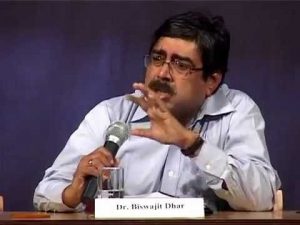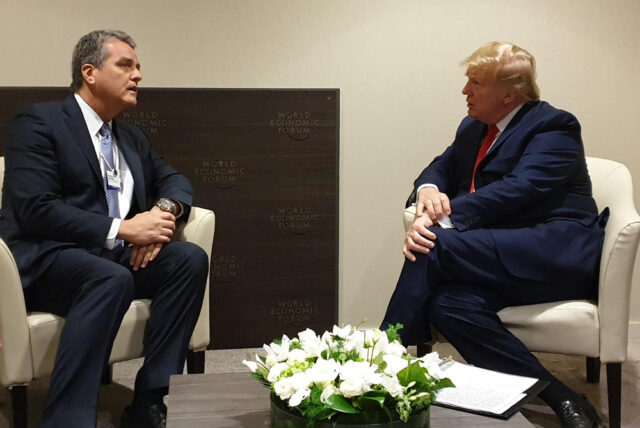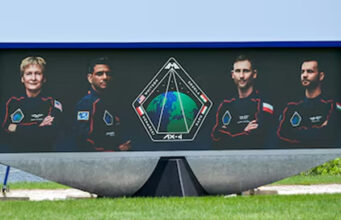NEW DELHI: The shock resignation of World Trade Organization (WTO) chief Roberto Azevedo has added to the uncertainty surrounding the organization which was already under great pressure. In an interview with StratNews Global’s Opinion Editor Ashwin Ahmad, Professor Biswajit Dhar at JNU’s Centre for Economic Studies and Planning gives his thoughts on the ramifications of the exit, what it means for the WTO and what it could mean for the global economy
Professor Biswajit Dhar at JNU’s Centre for Economic Studies and Planning gives his thoughts on the ramifications of the exit, what it means for the WTO and what it could mean for the global economy
Q: How do you view the abrupt resignation of the WTO chief. Do you think this could be the beginning of the end of the WTO and perhaps for globalisation too?
A: I think this is a very worrying sign for a global economic governance framework that was established after WWII. The rules-based framework, the financial institutions and GATT which established trade rules was supposed to bring stability to the global order. From that perspective, this is a very serious development. Globalisation may continue but the rules-based order that we had will be difficult to get back now. This will be a big problem for global trade.
Q: Will the US allow a new WTO chief to be selected?
A: The WTO is in serious trouble. The US administration had already declared a war against it by not allowing the dispute settlement body to function. Now we are faced with a bigger challenge because the US will continue to play spoilsport. This is because they don’t want a rules-based organisation to emerge. If they didn’t allow appellate body members to be appointed for the past four years, then putting in a successor to the WTO chief will even more difficult. I believe the international community will fail to identify and appoint a new chief of the WTO for the foreseeable future.
Q: Is the demise of the WTO just an electoral issue for President Trump or does it go deeper?
A: President Trump will see this as a victory, as he has always been arguing the WTO doesn’t help the US. In fact, he doesn’t think any of the multilateral bodies are helping the US. You’ll recall his non-cooperation with the IMF last month. So, there is a problem, the US wants to exercise its power, as the sole superpower, to not be bound by any global rules.
Q: How does this affect other major nation-states such as China and India?
A: This is going to hurt many countries. Not China, because as so far we have seen in the trade war, China could stand up to US pressure and eventually Trump had to come and do a deal with Beijing. So, China won’t be hurt as it has found its own ground. India is a different story it will certainly be hurt. We are still a developing country and for us, the multilateral system is the best bet and therefore we need global trade rules because otherwise, the bigger countries are going to flex their muscles and apply unilateral pressure. I think countries like India will lose out.
Q: How much would this impact our economy?
A: This is difficult to quantify but India does owe a lot to the WTO. In the past 25 years – the WTO was founded in 1995 – there has been considerable growth. This current decade has seen a slowing of trade but in terms of certainty, the trading community here wants certainty in terms of rules. This is the biggest USP of the WTO for us, the rules are predictable and transparent in that you know which countries are imposing what kind of rules, so traders can plan. It enhances trade for us to quite an extent.
Q: Given that’s in our interests, can India, in concert with other nations, work to safeguard the WTO and the international rules-based order?
A: I think India does need to play a big role here by becoming the leader of the developing countries to preserve this rules-based framework. This is for everyone’s betterment. India needs to take up this issue at every international forum it is part of whether it is the G-20 etc. The WTO already has a number of coalitions that India is part of. Such coalitions can be the building bricks for a larger number of countries. India, South Africa – not Brazil as it is in the US camp – along with other emerging countries can raise these issues that countries need to be held accountable to international rules. It won’t be easy, but it is important for India to reach out and start building these coalitions.
Q: What is your outlook for the future?
A: There are two possible outlooks. We might see a stronger China post-pandemic. We have seen that China has so far managed to flatten the curve and if we look at history, whether it is 9/11 or the 2008 global recession, it has consolidated itself and emerged much stronger. This could be then be a trigger for both developed and developing nations, perhaps even the US, to turn once again towards a rules-based system. The other possibility is a free-for-all. Already, the WTO is talking about a drop of one-third in trade this year, and without international rule and practices, the recovery will be even more prolonged and painful.
















